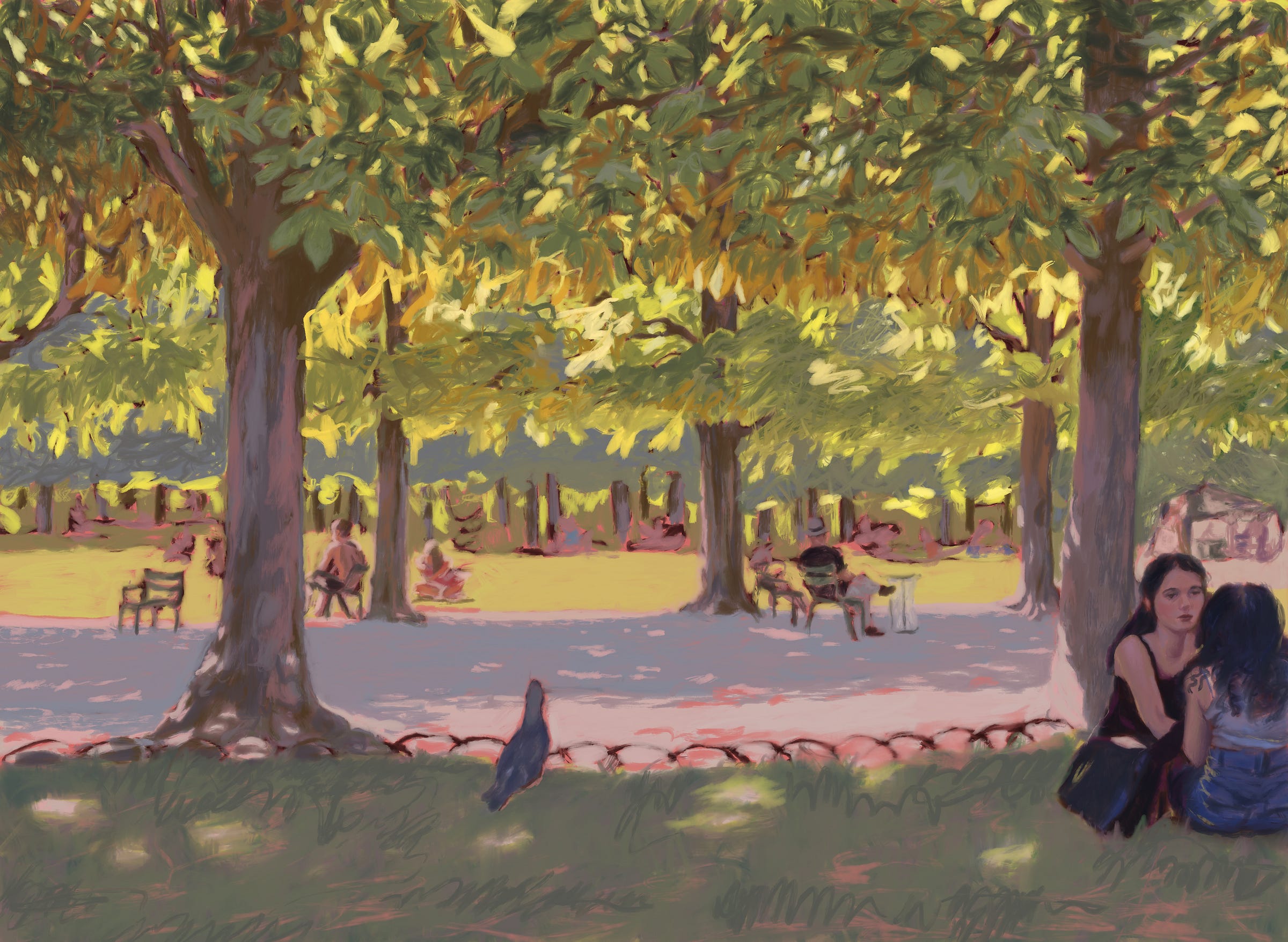Pigeons On The Grass, Alas
A Sunday Letter
Dear Friend,
It’s a bit after 8 a.m. and I am writing this letter in bed. Morning light is coming in through the orange curtains, and I am listening to an archived recording of Four Saints in Three Acts, an opera by Virgil Thomas with libretto by Gertrude Stein. Yes, that Gertrude Stein. When I’m feeling better, I want to write about Stein and the part of this libretto that begins “Pigeons on the grass, alas…” and ends with the seemingly nonsensical repetition of the phrase “Let Lucy Lily.” I think it’s actually about Stein’s spiritual reckoning with gayness—but more on that later.
I’ve had the phrase “pigeons on the grass, alas” stuck in my head the past few weeks. I’ve been working on this study for a painting (see above) which has, yes, a pigeon on the grass. It’s based on sketches I made in the Luxembourg Garden a few summers ago. That famous Stein excerpt about the pigeons, which is usually presented as a poem, has been given as an example of self-indulgent meaninglessness in surrealist and modernist texts. But I think I might actually have something interesting to say about her intent with this libretto, and with “pigeons on the grass” in particular.



